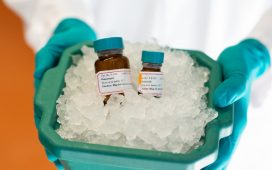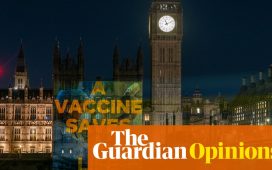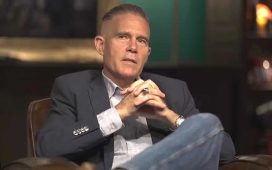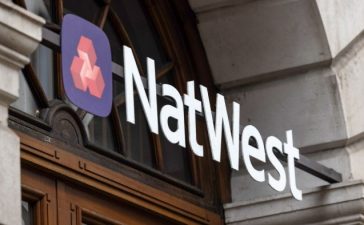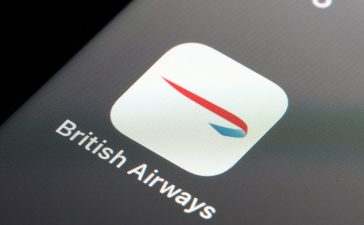The UK’s role in the next generation of interplanetary exploration should be that of a space “watchdog” leading on regulation, insurance and finance, a former science minister has said, in an effort to rein in a situation he compared to the wild west.
George Freeman, the MP for Mid Norfolk who was minister for science, research, technology and innovation under Boris Johnson and Rishi Sunak, said the need for standards was pressing.
“The truth is, with little or no regulation space is in danger of becoming a free-for-all wild west of commercial and military satellites being launched in the new space race,” he said.
“There are now 40 tonnes and a million pieces of debris. Ninety-eight per cent of satellites are uninsured. As the global commercial space sector takes off and more and more businesses are reliant on satellites, space is not unlike the early days of the automobile. But who wants to drive down a highway where 90% of vehicles are unmanned, have no insurance and you have to navigate around debris and broken down vehicles?”
Freeman said as space minister he had focused on UK leadership in space regulation, insurance and finance; convening the industry partnership with the UK space sector and Lloyds of London to create the Earth∞Space Sustainability Initiative (ESSI), which aims to set global standards for the sector, and securing the backing of Canada, Japan and Switzerland through the global summit at the Royal Society.
“The idea of my space debris regulation and the creation of the Earth Space Sustainability Initiative was very simple,” he said. “If you’re compliant with the UK [standards] – if your satellite is retrievable, if it’s rechargeable, if it’s recyclable – you’ll get quicker licensing, cheaper insurance and access to ESG [environmental, social and governance] finance.”
Freeman added that by smart regulation, markets can be created for innovative UK companies, noting the satellite retrieval company Astroscale has a base in the UK. A shift from launching ever more satellites to increasing the spectrum bandwidth on satellite constellations, could also produce opportunities.
“It just isn’t sustainable to continue the race for constellation coverage on the basis of the volume of satellites,” he said, arguing for a system where contractors carry “ multiple data streams in safely encrypted spectrum bandwidth for multiple operators”.
While Freeman noted the UK does not have a fully integrated space industrial sector, he said it does have world-class science and technology and innovation. “We are a Formula One pit lane of smart satellite manufacturing, telemetry, SatComms services and EO [Earth observation] applications,” he said.
But it isn’t only in the field of satellite technology where regulation will be important. From crewed missions to Mars to the prospect of lunar mining and even creating data centres on the moon, the opportunities space offers are myriad.
Regulations around space debris, Freeman said, could act as a gateway to rules in other areas.
“It can gradually evolve,” the MP explained. “You could imagine, say, on space traffic control, that you wouldn’t get permission to launch from aviation authorities unless you’ve got a licence to operate. Licence to operate says you must be compliant with basic standards.
“You can’t be littering space with metal. You can’t be doing unregulated and dangerous nuclear, biological or chemical experiments on the surface of the moon. You can’t be ripping out minerals, unless you’ve got an abstraction licence. So once you start to create a framework, you intermesh the permissions and stop rogue actors.”
Freeman added the UK is well placed to lead on such matters. “Space needs a global regulatory alliance led by and headquartered in a trusted nation. You need a country that’s got a long and distinguished history as a trusted partner, a long, 300-year role as a regulator of choice, that believes in and is respected internationally for its legal system and is connected to financial market and international courts and jurisdiction,” he said.
“This is a huge opportunity for the UK. We should seize it.”


